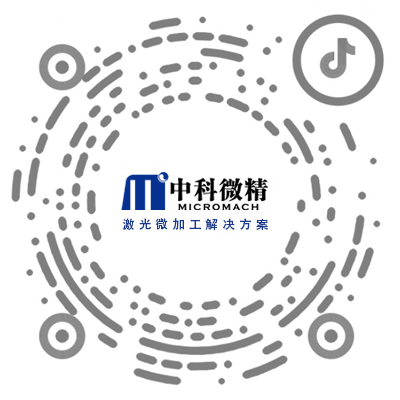President Xi Jinping has pointed out, "Self-reliance is the foundation for the Chinese nation to stand firm among the nations of the world, and independent innovation is the only way for us to climb to the peak of world science and technology."
As we embark on a new stage of development, implement new development concepts, and build a new development paradigm, we need innovation more than ever as a driving force, and we need to make self-reliance in science and technology the strategic support for national development.
During the early summer, when reporters visited Hangzhou, Xi'an, and other places, they saw that the scientific and technological community and the industrial community have kept in mind the entrust of the General Secretary, bravely shouldered their missions, worked hard to tackle key problems, and made solid progress towards self-reliance in science and technology.
Persist in strengthening basic research
Basic research is the source of scientific and technological innovation. President Xi Jinping has emphasized, "We must aim at the forefront of world science and technology, seize major trends, play our cards well, lay a solid foundation for the long term, be willing to sit on the cold bench, and dare to be tree planters and well diggers, in order to achieve major breakthroughs in forward-looking basic research and leading original innovations, and consolidate the foundation for building a powerful country in science and technology."
"We can no longer be content with just catching up!" Researchers have expressed that China's research has accumulated to a certain stage, and whether it is exploring the unknown, clarifying technical principles, or promoting industrial applications, we need to enhance our original innovation capabilities.
In March of this year, Nature magazine published a groundbreaking achievement by the team led by Chen Jiekai from the Guangzhou Institutes of Biomedicine and Health, Chinese Academy of Sciences: they discovered a new mechanism of RNA regulation in the formation of heterochromatin in mammals.
"With the '1' of basic research, the subsequent '0's of application will have meaning," Hou Hongming, deputy secretary of the Guangzhou Institutes of Biomedicine and Health, told reporters that the institute has always attached importance to basic research and has made a series of breakthroughs in recent years, such as discovering that vitamin C can promote the production of stem cells and designing iPS factors with independent intellectual property rights.
In an underground laboratory of the Xi'an Institute of Optics and Precision Mechanics of the Chinese Academy of Sciences, researcher Yang Jianfeng is developing a hard X-ray imager. This is one of the three payloads of China's first comprehensive solar exploration satellite ASO-S, and it will be launched into orbit 720 kilometers above the Earth's surface in the future to take "photos" of the sun and observe solar flares.
"This is the most difficult project I have encountered," admitted Yang Jianfeng, who has been engaged in the development of spaceborne cameras for more than 20 years. The hard X-ray imager has extremely high requirements for grating processing and alignment accuracy, but the significance of the work is great. In addition to improving the development level of spaceborne cameras, it can also obtain first-hand data for solar observations and make original contributions to astronomical research.
At the micro-nano processing platform of Westlake University, researchers are wearing jumpsuits and concentrating on experiments. At the end of last year, Vice President and Chair Professor of Optical Engineering Qiu Min led his team to achieve a major breakthrough in "ice lithography" for three-dimensional micro-nano processing technology. This research is difficult, has a long cycle, and has few people paying attention to it, but it is of great significance as it can lay the foundation for future precision manufacturing.
Since its establishment in February 2018, Westlake University has introduced 161 high-level talents, who have set original research as their goal. This young research university has emerged in original research just three years after its establishment. In the early stages of fighting the COVID-19 epidemic, the Zhou Qiang lab was the first in the world to resolve the full-length structure of the receptor for the new coronavirus and "see" the process of the new coronavirus infecting the human body, providing a theoretical basis for drug and vaccine development; the Guo Tiannan lab found a series of biomarkers by analyzing the serum of severely ill patients, which is expected to provide guidance for predicting the progression of mild patients to severe illness.
Mastering key core technologies in our own hands
Key core technologies are the pillars of a country. President Xi Jinping has pointed out, "Practice has repeatedly told us that key core technologies cannot be begged for, bought, or asked for. Only by mastering key core technologies in our own hands can we fundamentally safeguard national economic security, national defense security, and other security aspects."
Mass spectrometry instruments are indispensable important instruments in scientific research, industrial production, aerospace, and other fields. For a long time, the market for high-end mass spectrometry instruments in China has been monopolized by a few developed countries. Nowadays, this situation is changing.
Walking into the product research and development center of Guangzhou Hexin Instrument Co., Ltd., researchers are testing and debugging various models of mass spectrometry instruments. "Holding onto the belief of 'making mass spectrometry instruments for Chinese people,' we have been working hard," said Dr. Zhou Zhen, the company's chief scientist. After a decade of continuous efforts, they have finally made China one of the few countries in the world that master the core technology of high-resolution time-of-flight mass spectrometry instruments. Their self-developed online single-particle aerosol mass spectrometry instrument, which was launched onto the market in 2014, not only broke the monopoly of foreign products, achieved import substitution, but also exported to developed countries.
The Distributed Control System (DCS) is known as the "industrial brain," with complex technology and high industry barriers. In the exhibition hall of Zhejiang Supcon Technology Co., Ltd., Mo Wei, the company's senior vice president, told reporters that after years of research, the company has broken through the "neck-choking" technologies in the field of automation control systems, developed DCS and safety instrumentation systems with independent intellectual property rights, and successfully achieved industrial application. "Our technology has also achieved partial catch-up. Currently, our products are used at over 20,000 industrial sites and have established stable cooperative relationships with international clients such as Saudi Aramco and Daikin Industries."
Industrial steam turbines are the "crown" of the equipment manufacturing industry. In order to break free from the technological restrictions of foreign companies, Hangzhou Turbine Group Co., Ltd. has made breakthroughs in the development of blades, the core components of industrial steam turbines, after more than 10 years of research. In 2018, the company won the bid for the world's most powerful industrial steam turbine for driving applications; in 2020, the unit was successfully put into production and was certified as an international first-of-its-kind product, transforming Hangzhou Turbine
Original link: http://paper.people.com.cn/rmrb/html/2021-05/28/nw.D110000renmrb_20210528_1-02.htm


 微信公众号
微信公众号
 抖音
抖音
 视频号
视频号